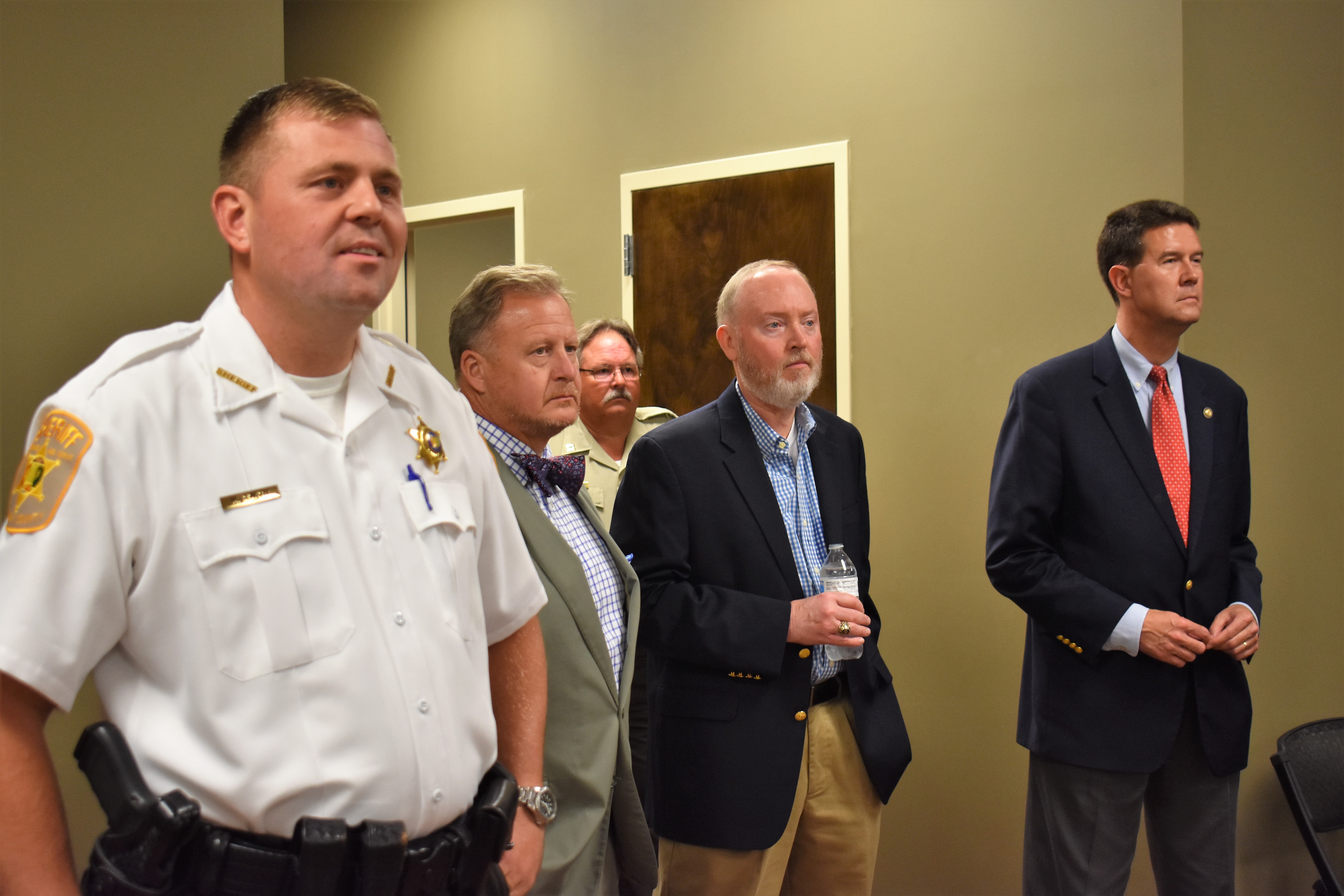Cullman County Sheriff Matt Gentry (left) welcomed Cullman County District Judge Rusty Turner, Cullman County Circuit Judge Gregory Nicholas, Alabama Sec. of State John Merrill, and others to the Cullman County Sheriff’s Office Citizens’ Academy Tuesday evening. (W.C. Mann for The Cullman Tribune)
CULLMAN – The second 2018 session of the Cullman County Sheriff’s Office (CCSO) Citizens’ Academy has been going strong for several weeks now, with 40 local citizens enrolled. This week, participants got to hear from elected officials in the county’s court system and legislative delegation, including:
- Alabama Sec. of State John Merrill, who talked about the work of his office in promoting voter registration, securing elections (See The Tribune’s separate story for details Merrill shared about Russian hacking of U.S. state election systems, including Alabama’s.), expediting new business filings and assisting in international adoptions.
- Republican Judge Christy Edwards, who is running unopposed for Place 1 on the Alabama Court of Civil Appeals. She is currently on the Alabama Tax Court. Edwards described the functions of the different branches of the court system, including circuit, district, appellate, municipal, and other types of courts.
- Rep. Corey Harbison, R-Good Hope and Republican nominee for Alabama House of Representatives District 9, Scott Stadthagen, who is unopposed in his bid to fill the House seat vacated by Ed Henry. Stadthagen, new to state politics, introduced himself to the class, and Harbison talked about the functions of the legislature.
- Cullman County District Judge Rusty Turner spoke about the functions of the District Court, including its role in family court. In attendance with Turner were representatives of Cullman County Court Appointed Special Advocates (CASA), a volunteer agency whose members look after the interests of children involved in DHR and other cases.
Why people commit crimes
Cullman County Circuit Judge Gregory Nicholas was the last to address the class, sharing the presentation he often makes at schools about why people become involved in crime. His talk focused on five factors common to a large number of people who come through the court system as criminal defendants. Nicholas was careful to note that the presence of one or more of these traits in a person does not mean that person will become a criminal, but he also pointed out that many defendants in his court have at least three of the traits.
- Age – The majority of crimes are committed by teens and young adults, whose reasoning and impulse control abilities might not be fully developed. Even though those parts of the brain don’t reach maturity until people approach their mid-20s, Nicholas cautioned that immaturity is not an excuse for criminal behavior.
- Drug use – In 80 to 90 percent of felony cases, the accused suffers from alcohol or drug addiction.
- Lack of education – Almost 80 percent of people in prison lack a high school diploma or GED.
- Absent parent – Around 70 percent of people in prison grew up without one of their parents being significantly involved in their lives.
- Bad choice of friends – Young people are often encouraged to take part in criminal activity by having friends who are involved.
- Lack of a moral or religious foundation – Kids who are active in church or other religious activities are less likely to become involved in criminal activities, according to Nicholas.
Copyright 2018 Humble Roots, LLC. All Rights Reserved.





















